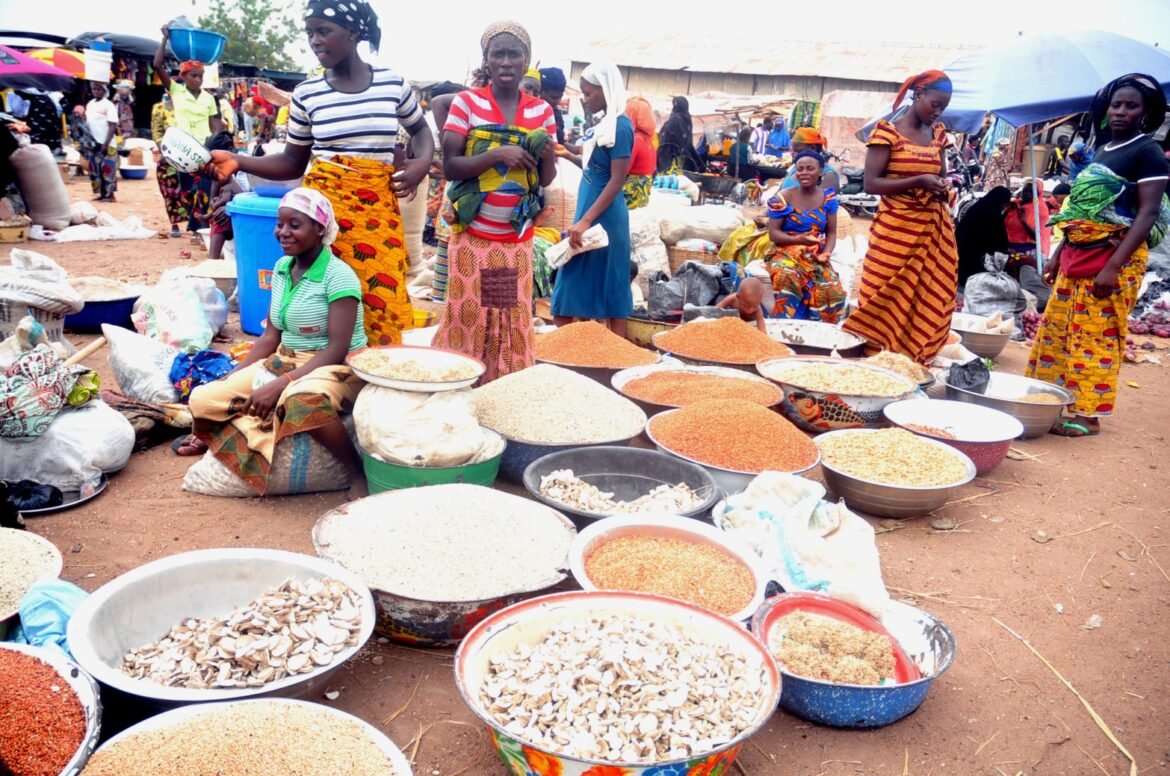—Records 10 consecutive month riselCBN upbeat on price stability
By Peter Egwuatu, Nkiruka Nnorom and Elizabeth Adegbesan
Amid sustained rise in food prices, Nigeria has recorded a 10th consecutive rise in inflation rate to a new high of 27.33% for the month of October, as analysts see further rises in the months ahead.
The new figure represents a 0.61 percentage points year-on-year (YoY) when compared to 26.72% recorded in September.
The National Bureau of Statistics, NBS, which disclosed this in its Consumer Price Index, CPI, report for October yesterday, noted that the food index increased YoY to 31.52% from 30.64%.
According to NBS, the rise in food inflation was caused by increases in prices of bread and cereals, oil and fat, potatoes, yam and other tubers, fish, fruit, meat, vegetables and milk, cheese and eggs.
NBS said: “In October 2023, the headline inflation rate increased to 27.33% relative to the September 2023 headline inflation rate which was 26.72%.
“Looking at the movement, the October 2023 headline inflation rate showed an increase of 0.61 percentage points when compared to the September 2023 headline inflation rate.
However, the inflation rate declined month-on-month (MoM) by 0.37 percentage points to 1.73percent in October from 2.1 percent in September.
On food inflation, NBS stated: “The rise in food inflation on a YoY basis was caused by increases in prices of bread and cereals, oil and fat, potatoes, yam and other tubers, fish, fruit, meat, vegetables and milk, cheese and eggs.
“On a month-on-month basis, the Food inflation rate in October 2023 was 1.91 percent this was 0.54 percentage points lower compared to the rate recorded in September 2023 (2.45 percent)”.
According to NBS, food inflation was a YoY basis the highest in Kogi (41.74 percent), Kwara (38.48 percent) and Lagos (37.37 percent), while Borno (24.41 percent), Kebbi (24.90 percent) and Jigawa (25.10 percent) recorded the slowest rise in food inflation during the period.
CBN upbeat on price stability
Meanwhile, in a chat with newsmen in Abuja on the latest NBS figures, spokesman of the Central Bank of Nigeria, CBN, Dr. Isa AbdulMumin, expressed optimism that the low rate of increase in the average price level in October compared to September 2023, was a pointer to the fact that the bank’s monetary policy stance to tighten rates and its money market reforms were yielding the desired effect.
In spite of 0.61% increase in the headline inflation, Isa remained upbeat that the CBN was headed in the desired direction in terms of achieving price stability.
According to him, available statistics showed that the first indication of deceleration in prices was recorded in September and further reforms in the money market, which commenced in October, had accelerated prices as indicated by the substantial drop in month-on-month changes recorded in October.
“Moderation in month-on-month changes in prices observed in the headline, food and core components of the consumer basket followed reforms in the money market and relative stability in the FX market,” he added.
But analysts seem to have disagreed with the apex bank hinting that the inflationary pressure would continue much in the months ahead.
No respite in sight yet —Akinloye
According to Ayorinde Akinloye, an economic and investment strategist, the inflationary pressure would persist through this year (2023) with stability likely to be seen in 2024.
Akinleye said: “Several inflationary pressure points remain in the economy. The impact of the recent pressure on the currency is yet to filter through to prices and will be a major inflation driver in the next few months.
“However, considering we are in the harvest season, we may likely see food prices rise at a slower rate than we have experienced in 2023.
“Overall, I still expect to see inflation sustain the uptrend through 2023 with any form of stability more likely in 2024 and primarily supported by base effects.”
Economy in a persistent state of disequilibrium
—Olayinka
Reacting to the sustained rise in inflation rate, Tajudeen Olayinka,who is the CEO of Wyoming Capital and Partners, said: “What we are seeing is a reflection of an economy in a persistent state of disequilibrium. It simply means Nigeria’s economy is yet to free itself from both supply side and demand side factors that are possibly fuelling inflation. So, once we begin to address numerous challenges around supply and demand side of the economy, such as poor dollar liquidity, rising money growth, insecurity around food supply-chain, fiscal indiscipline, etc, we will be out of rising inflation.”
Further fiscal measures must be taken to close supply gap —Adonri
Also, reacting, David Adonri, the Vice Executive Chairman, Highcap Securities Limited, said: “Analysts had made a forecast inflation rate of 30% by 2023 year end. The figure is approaching that level. Inflation rate has been rising steadily since 2019 despite the contractionary monetary policy deployed by CBN. Other unorthodox strategies to decelerate the rising inflation including the ill fated cash squeeze failed to arrest the situation.
“Nigeria’s inflation started rising in 2019 following the excessive money supply by CBN and government to enable the economy recover from two stagflations. The money saturation continues to fuel inflation.
“Nigeria is import dependent. With the collapse of crude oil refining locally, the pressure on forex increased astronomically leading to currency depreciation and hike in imported inflation. “The recent market reforms amidst import dependence added more fuel to the burning fire of inflation. The failure of monetary policy to address the imbalance stems from the fact that underpinning the inflation is a supply imbalance which short term demand management policies cannot resolve. “While the pressure pilled by petroleum import may lessen very soon, further fiscal measures must be taken to close the supply gap. Arresting insecurity which has crippled agriculture is panacea for success of fiscal policy”.
OUTLOOK
Looking into the future, analysts at SCM Capital Limited, a member of the Sterling Bank Group stated: “We expect prices of commodities to remain elevated, though at a decreasing rate, as current FG reforms on FX and subsidy removal continue to influence the general price level.








